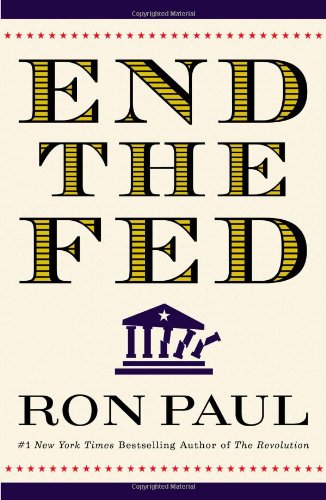Recently by Ron Paul: Healthcare Reform Is EconomicMalpractice
Dear Financial Services Committee Colleague:
It is encouraging to see the issue of Federal Reserve transparency receiving so much attention during this current markup. Today we plan to offer an amendment to the Financial Stability Improvement Act that expands on the many extant proposals to enhance Federal Reserve transparency. Our amendment is based on HR 1207, the Federal Reserve Transparency Act, which has broad bipartisan and grassroots support. The bill is cosponsored by 309 Members of Congress, including all Financial Services Committee Republicans and 13 Financial Services Committee Democrats.
The amendment removes restrictions on GAO audits of the Federal Reserve, as HR 1207 does, but makes a few changes to take into account some of the concerns that the Fed has made known in public testimony. Specifically, the Paul/Grayson amendment:
- Exempts unreleased transcripts and minutes from meetings of the Board and FOMC to address the Fed’s concerns that free and open debate in their meetings would be stifled.
- Sets a 180-day time lag for release of details of market actions the Fed has undertaken, to address the Fed’s concerns that Congress or GAO is second-guessing its actions.
- Removes boilerplate language that allowed GAO to make recommendations on monetary policy and adds a section stating that nothing in the amendment shall be construed as interference in or dictation of monetary policy to the Fed.
 End the Fed
Best Price: $1.12
Buy New $8.53
(as of 10:10 UTC - Details)
End the Fed
Best Price: $1.12
Buy New $8.53
(as of 10:10 UTC - Details)
Unlike proposals that target the Fed’s 13(3) facilities, the Paul/Grayson amendment opens up the entire $2 trillion Federal Reserve balance sheet to a GAO audit. The Fed’s recent purchases of nearly $800 billion in mortgage-backed securities (MBS) have occurred under the MBS Purchase Program, authorized under section 14(b) of the Federal Reserve Act. This program, which is expected to reach a size of $1.25 trillion, would remain exempt from audit even if all the current 13(3) audit proposals were to go into effect. Targeting facilities that are in the process of being drawn down and that are authorized under a specific subsection of the Federal Reserve while allowing other facilities to spring up in their place is counterproductive to true transparency. All purchases and loans that appear on the balance sheet should be subject to audit, without loopholes for the Fed to evade scrutiny.
More importantly, the Paul/Grayson amendment does not create any additional burdens. Some competing proposals, while making a good effort at expanding the number of 13(3) facilities open to audit, take a step backwards by imposing new restrictions on GAO that are more burdensome than the restrictions currently written into law. We cannot accept these new restrictions. Unlike competing proposals, this amendment amends existing restrictions on GAO audit authority, a necessary precondition for a complete audit. Competing proposals leave these restrictions in place, and even add new ones.
We also reject the false dichotomy between transparency and independence. The Paul/Grayson amendment would achieve the necessary transparency of the trillions of dollars of Fed interventions while keeping Congress from directly intervening in the decision-making process. Independence should not be synonymous with secrecy. We urge our colleagues to support the Paul/Grayson amendment.
Sincerely,
Ron Paul, Member of Congress Alan Grayson, Member of Congress
November 19, 2009





